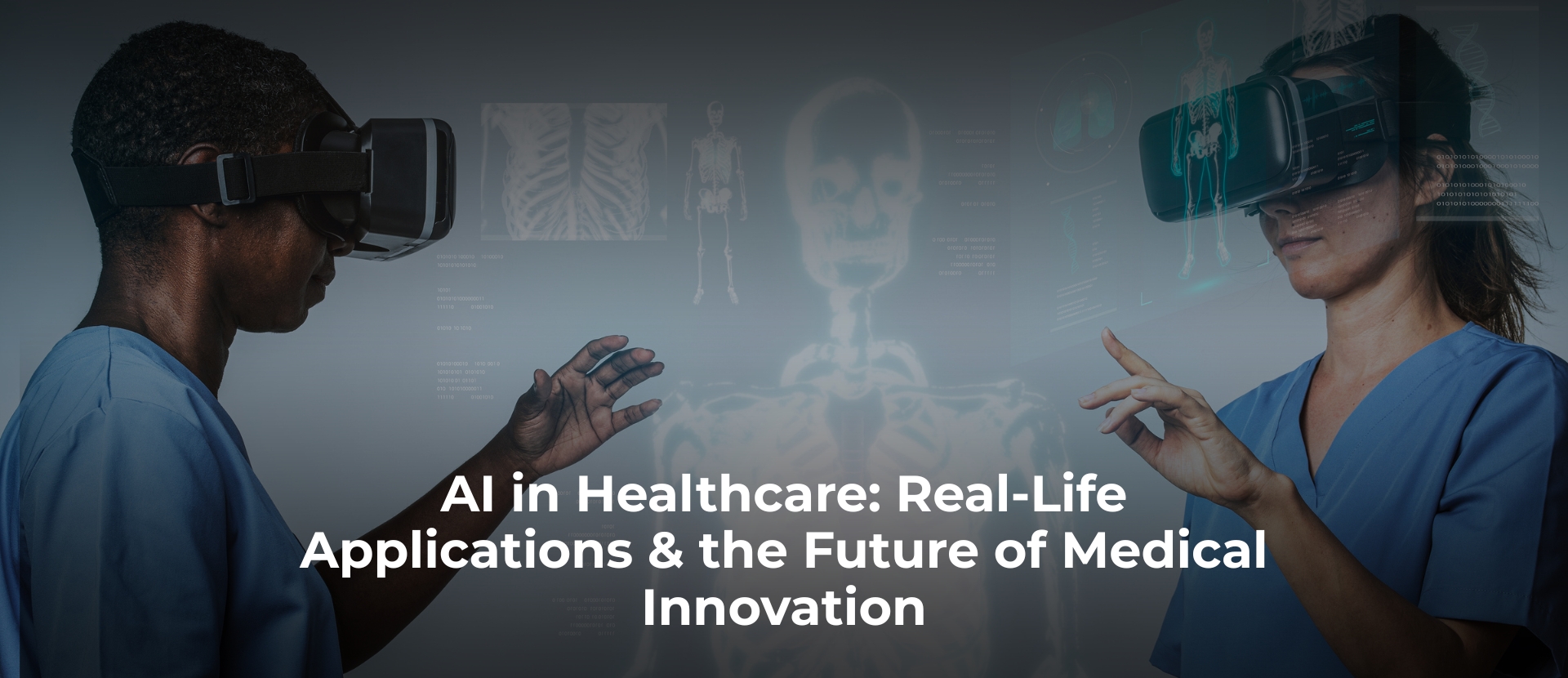
AI is transforming healthcare in ways we once only imagined. It’s speeding up diagnoses, personalizing treatments, and even predicting diseases before they emerge. For instance, AI tools like DeepMind can diagnose eye diseases with expert-level accuracy, while platforms like Atomwise are accelerating drug discovery. From robotic surgery to virtual health assistants, AI is making healthcare smarter, faster, and more efficient.
Here, we’ll explore how AI is already making waves in healthcare and what exciting innovations lie ahead for this game-changing technology.
AI in healthcare refers to the use of advanced algorithms, machine learning (ML), and natural language processing (NLP) to perform tasks that traditionally required human intelligence. These technologies can analyze vast amounts of data, recognize patterns, and make decisions faster than humans.
Key AI technologies transforming healthcare include:
AI is already making significant strides in the healthcare space. By 2025, 90% of hospitals are expected to utilize AI-powered technology for early diagnosis and remote patient monitoring. So, let’s explore some of the most impactful applications.

AI is revolutionizing how diseases are diagnosed. Machine learning algorithms can analyze medical images like X-rays, CT scans, and MRIs with precision that rivals or even surpasses that of experienced radiologists.
For example, AI-driven tools like Google’s DeepMind have shown promise in diagnosing eye diseases and predicting patient deterioration. AI models in radiology can analyze scans for signs of cancer, enabling earlier detection and treatment.
AI can help create customized treatment plans for patients based on their genetic data, medical history, and lifestyle factors. By analyzing vast datasets, AI identifies what treatment methods have worked for similar patients, ensuring the right treatment is provided.
For example, platforms like IBM Watson Health are using AI to personalize treatments, matching patients with the most effective drugs based on their individual molecular profiles.
The process of drug discovery is traditionally time-consuming and costly. AI accelerates this by analyzing millions of data points to identify potential drug compounds faster than humans ever could.
For example, Atomwise, a leading AI platform, uses machine learning to predict how molecules will interact in the body, speeding up the drug discovery process. Similarly, BenevolentAI has discovered promising drug candidates for diseases like ALS using AI-powered tools.
Virtual health assistants powered by AI can support patients 24/7, answering questions, scheduling appointments, and providing basic health advice. These systems can collect data from patients, reducing the need for human intervention in non-emergency situations.
For example, AI-powered platforms like Babylon Health and Ada Health provide virtual consultations, helping patients with symptom assessment, treatment advice, and referrals to human doctors when necessary.
AI is also improving surgical precision. Robotic surgery systems, like the da Vinci Surgical System, use AI to guide surgeons through procedures, ensuring high precision and better patient outcomes.
For example, in prostate surgeries, robotic systems use AI to analyze patient data and optimize surgical procedures, reducing recovery time and minimizing errors.
To fully grasp the transformative potential of AI in healthcare, including its benefits and challenges, check out our detailed blog on AI in Healthcare: Benefits, Risks, and Use Cases. Explore how AI is shaping the future of diagnostics, treatments, and more.
AI’s impact isn’t limited to patient care; 85% of healthcare leaders are adopting generative AI at scale to boost clinical productivity and patient engagement. From automating documentation to optimizing patient scheduling, AI is freeing up valuable time for medical professionals to focus on patient outcomes.
For example-
Moreover, AI systems help predict patient volume, ensuring healthcare facilities are adequately staffed and prepared, reducing delays and ensuring optimal care.
The future of AI in healthcare is incredibly promising. We can expect even more advanced innovations, transforming patient care and clinical operations further.

AI’s ability to predict diseases before they develop is one of the most exciting prospects in healthcare. By analyzing genetic data and environmental factors, AI can identify at-risk patients and help prevent diseases before they even begin.
Example:
AI models could predict the likelihood of a patient developing conditions like diabetes, cardiovascular diseases, or even cancer, based on genetic markers and lifestyle.
The growing use of AI-powered wearables is another trend to watch. Devices like smartwatches and fitness trackers now use AI to monitor real-time health data, alerting users and doctors about potential health issues.
Example:
Wearables that track heart rate, oxygen levels, and even early signs of a stroke or heart attack are powered by AI algorithms that help diagnose conditions in their earliest stages.
We can expect even more advanced robotic systems with AI capabilities, capable of performing highly complex surgeries with precision that far exceeds human limitations. AI will also improve training for surgeons, offering virtual practice and real-time feedback during surgeries.
AI has already proven itself as a game-changer in healthcare, and its potential is only growing. From diagnostics to drug discovery and surgical assistance, AI is enhancing medical care while improving efficiency and precision. As we look toward the future, AI will continue to drive innovations, making healthcare more accessible and personalized than ever before.
At Gignaati, we believe in harnessing the power of AI to transform industries and improve lives. Explore how Gignaati’s AI marketplace connects innovators driving healthcare transformation. Get started now!
AI analyzes medical images and patient data to identify conditions like cancer, heart disease, and eye disorders with high accuracy, improving early diagnosis.
AI health assistants are virtual systems like chatbots that provide consultations, help schedule appointments, and offer advice based on patient data and symptoms.
AI streamlines administrative tasks, optimizes patient scheduling, and automates routine tasks, allowing healthcare providers to focus more on patient care.
Yes, AI uses patient data, including genetic and medical history, to design customized treatment plans, ensuring more effective and targeted healthcare interventions.
AI in healthcare improves diagnostic accuracy, personalizes treatment plans, accelerates drug discovery, and increases operational efficiency, ultimately improving patient outcomes and reducing costs.
Explore Gignaati.com – where top AI innovators showcase verified AI agents for real-world solutions.
© 2025 Gignaati is a product of Smartians.ai. All rights reserved.